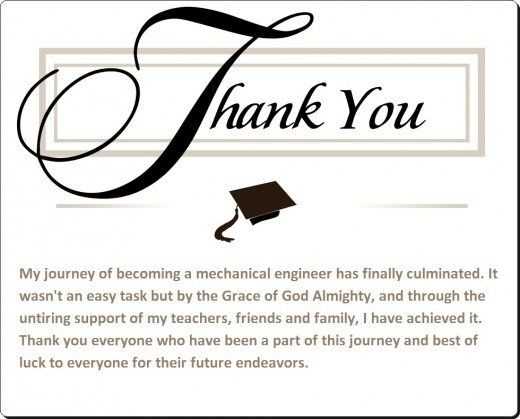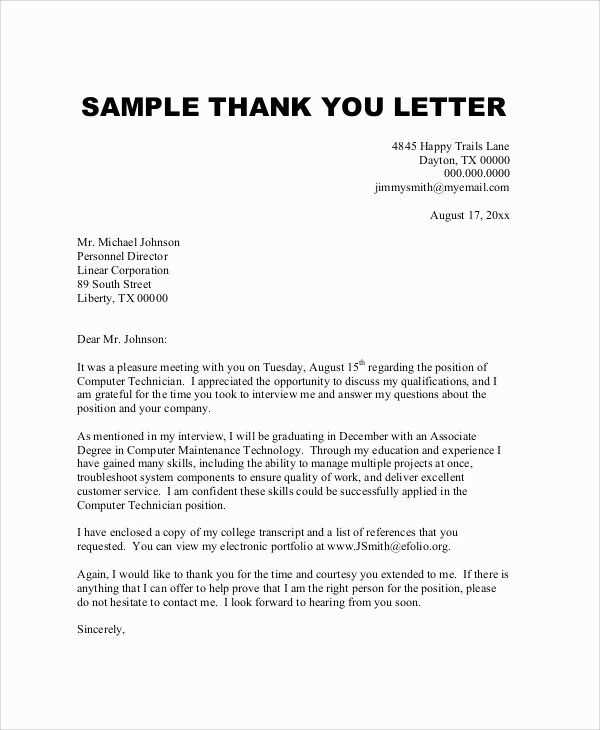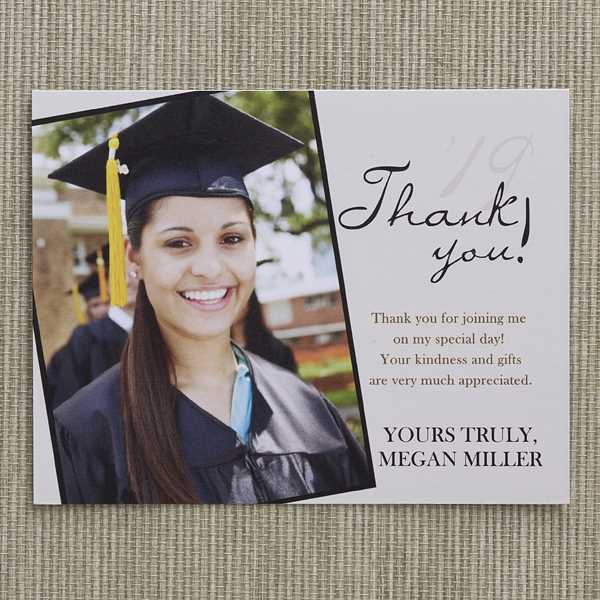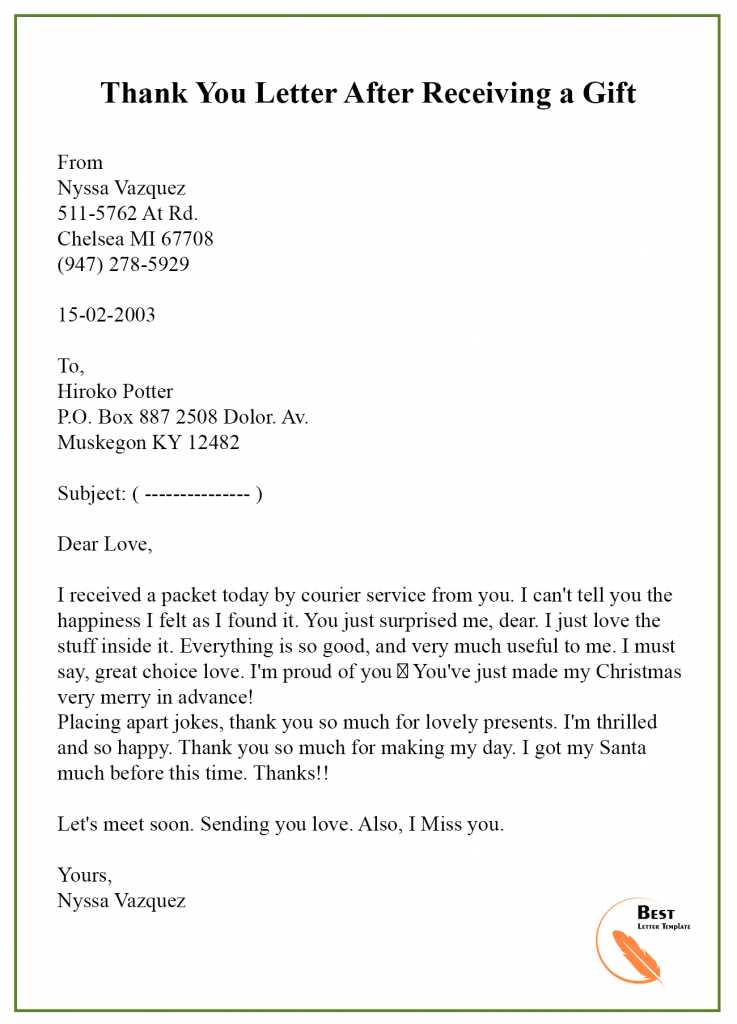Thank you letter template graduation gift

Writing a thank you letter for a graduation gift shows your appreciation in a heartfelt and personal way. Start by addressing the giver by name, expressing gratitude for the specific gift, and acknowledging its thoughtfulness. Mention how it will be used or why it means so much to you.
Be specific when describing the gift. Instead of simply saying “thank you for the gift,” explain how it will help you in your next steps. For example, if you received a gift for your future studies or career, mention how it will support your goals or bring joy to your life.
Keep the tone warm and genuine. If you can, add a personal touch by referring to a meaningful moment shared with the giver or how their support has made a difference in your life. Ending with an invitation to stay in touch or expressing excitement to share future accomplishments makes your gratitude feel more complete.
Thank You Letter Template for Graduation Gift
Begin your thank you letter with a personal greeting and acknowledgment of the gift received. Express your genuine appreciation for the gesture and the thoughtfulness behind it.
Sample Template:
Dear [Name],
I hope this note finds you well! I wanted to take a moment to thank you sincerely for the wonderful graduation gift. It truly means a lot to me, and I am so grateful for your generosity and support.
The [specific gift] is perfect, and I can’t wait to [mention how you plan to use it]. Your kindness has made this achievement even more memorable, and I feel incredibly lucky to have people like you in my life.
Thank you once again for celebrating this special milestone with me. Your thoughtful gift will be cherished for years to come.
With gratitude,
[Your Name]
Key Tips for Writing Your Own Letter:
- Personalize the message to reflect your relationship with the giver.
- Be specific about how the gift will be used or why it’s meaningful.
- Keep your tone warm and sincere, reflecting your appreciation.
How to Begin Your Thank You Letter
Begin your letter with a clear expression of gratitude. Address the recipient by name to create a personal connection. Start by mentioning the specific gift you received and how much it means to you. Be direct, but warm in tone, showing genuine appreciation for their thoughtfulness.
Express Your Feelings Right Away
Rather than starting with formalities, dive straight into your appreciation. For example: “Thank you so much for the beautiful graduation gift. It was such a thoughtful gesture, and I will cherish it always.” This sets a positive tone and makes it clear that you’re sincerely thankful.
Keep It Personal
Link the gift to a specific memory or feeling. This makes the note more heartfelt. For instance, “Your gift will always remind me of the wonderful support you’ve given me throughout my studies.” This personal touch will make the recipient feel valued and appreciated.
Crafting a Personal Touch: Acknowledging the Gift
Begin by directly referencing the gift itself. Make it clear how much you appreciate the thoughtfulness behind the gesture. Focus on specific details–whether it’s the unique nature of the item or how it aligns with your personal tastes. Showing awareness of the time and effort invested in choosing the gift adds authenticity to your gratitude.
Be Specific in Your Gratitude
Rather than a generic thank you, mention how the gift will be used. Whether it’s a practical item for everyday life or something that adds sentimental value, expressing your plans to make the most of the gift demonstrates its true impact. Acknowledging the thought behind the choice enhances the personal connection.
Connect the Gift to Your Future
Let the giver know how their gift will accompany you as you move forward. Whether it’s something that will assist in your next steps or something that holds meaning for future moments, this connection shows that their gift will be part of your ongoing story. It’s a simple way to tie their generosity to your next chapter.
Expressing Gratitude for the Gesture
Begin your thank-you note by directly acknowledging the gift and the thought behind it. Make sure to recognize the effort put into choosing something meaningful for you. Acknowledge the significance of the gesture and how it stands out to you.
Personalize Your Thanks
Address the specific details that make the gift memorable. For example:
- Mention how it fits perfectly with your needs or interests.
- Share a specific moment when you used or appreciated it.
- Relate it to your personal goals or aspirations, emphasizing how it enhances your next steps after graduation.
Show Your Appreciation for Their Support

Beyond the gift, express gratitude for the emotional support or encouragement you received. Highlight the positive impact it had on your journey. Acknowledge how their gesture continues to motivate you.
Finding the Right Words for a Meaningful Closing
Close your letter with a thoughtful note that reflects both your gratitude and personal connection. A well-crafted closing can reinforce the bond you share with the recipient. Express your appreciation directly, while leaving them with a warm, positive feeling.
Avoid generic phrases. Instead, focus on how their gift or support made a difference in your life. A simple, heartfelt message will resonate more deeply than any formal sign-off.
Here are a few examples of effective closings:
| Type of Closing | Example |
|---|---|
| Expressing Gratitude | “Thank you for being a part of this important milestone in my life. Your generosity means the world to me.” |
| Reflecting on the Gift | “The thoughtful gift you gave me will be something I cherish for years to come. I’m truly thankful.” |
| Highlighting Future Connection | “I look forward to staying in touch and celebrating more moments together. Thanks again for everything.” |
| Simple and Heartfelt | “Your kindness has made this day even more special. I’m so grateful to have you in my life.” |
Choose a closing that fits the tone of your relationship. A sincere and personalized message will leave a lasting impression and make the recipient feel truly appreciated.
Formal vs. Informal Tone: Choosing the Right Approach

For a thank-you letter related to a graduation gift, aim for a tone that matches your relationship with the recipient. If the giver is a close friend or family member, an informal tone is perfectly suitable. Use conversational language, express warmth, and show appreciation without being overly structured. Keep it light and personal.
For formal situations, such as a letter to a professor, mentor, or someone you don’t know well, a more formal tone is appropriate. Maintain professionalism by using complete sentences, addressing the person respectfully, and keeping the language polite but straightforward. Avoid slang or overly casual expressions to ensure the tone remains respectful and courteous.
Balance is key–if you’re unsure, opt for a semi-formal approach. This gives you the flexibility to express gratitude genuinely without compromising on respect. Tailor your tone based on who you’re writing to and the nature of your relationship with them.
What to Avoid When Writing Your Thank You Letter

Avoid using overly generic phrases like “Thank you so much” without adding specifics. Instead, focus on mentioning the specific gift or gesture that you’re grateful for.
Don’t overdo it with formal language or overly elaborate sentences. Keep the tone friendly and natural to convey sincerity. A letter that sounds stiff can come across as impersonal.
Stay away from being too vague about how the gift or gesture impacted you. Share a brief personal reflection or example that shows why it matters to you.
Don’t focus too much on apologizing for anything. If you feel the need to express gratitude for their time, effort, or generosity, keep it short and sweet–no need for excess disclaimers.
Don’t forget to proofread for mistakes. Grammatical errors or awkward phrasing can detract from the impact of your message.
Lastly, avoid using “thank you” multiple times in one sentence. Instead, mix in variations of appreciation to keep your letter engaging and genuine.